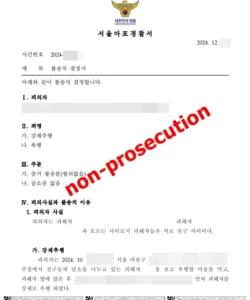Inheritance issues that overseas Koreans, Korean dual citizens, and foreigners experience regarding property in Korea often involve both their country of residence as well as Korea. Thus, it is vital to understand Korea’s inheritance system in addition to that of their respective country. Especially issues revolving around real estate located in Korea are likely to be affected by Korean laws regardless of the nationality of the deceased person leaving behind the inheritance, so being aware of the Korean inheritance laws can help you avoid inheritance disputes and disadvantages.
As of 2021, there are 7.32 million overseas Koreans. 39% of them, around 2.87 million, live in the United States and Canada, and the number of inquiries from foreign nationals and overseas Koreans seeking inheritance lawyers in Korea are increasing every year.

1. Which Country’s Laws Apply to Inheritance and Wills Involving Estate in Korea?
Table of Contents
1) Overview
The Korean inheritance law defines the “decedent” as the deceased or missing person who leaves behind an inheritance, and the inheritor or heir as the person who receives an inheritance from a deceased or missing person. If the decedent (deceased) is a resident of Korea, all property inherited anywhere in the world will be subject to taxation in accordance with Korean law, whereas if the decedent is a non-resident, only inherited property in Korea is subject to taxation under Korean law. Which country’s law applies to inheritance is generally determined by the nationality of the decedent (deceased). However, if the decedent (deceased) left a valid will/testament in which he or she specifically designated another country’s law, the inheritance shall be governed by the law of that country.
The laws that may be designated through a will in Korea are:
① The law of the country where the decedent lived at the time of his/her death
② When a property is subject to inheritance, the law of the country where the respective property is located
Therefore, a will can designate the applicable law not only according to the nationality of the decedent, but also according to the law of the country where the decedent lived at the time of his/her death, as shown in the example below:
| Methods of Will | |
| Will of a Korean national residing abroad | Will may designate Korean or the respective foreign country’s laws |
| Will of a Foreign national residing abroad | Will may designate only the respective foreign country’s law |
| Will of a Foreign national residing in Korea | Will may designate Korean or the respective foreign country’s laws |
2) If the Decedent (Deceased) possesses Korean Nationality
– If a deceased Korean national lived in Korea, the inheritance and will are governed by Korean law. Therefore, regardless of whether the inheritor/heir is an overseas citizen or resident, Korean laws will still apply to the received inheritance.
– If a deceased Korean national lived abroad, or if he/she possessed Korean nationality at the time of death, Korean law applies to inheritance. However, if the decedent (deceased) has designated another country’s law in their will, for example U.S. law, that designated law applies.
3) If the Decedent (Deceased) possesses a Foreign Nationality
– Generally, if a decedent (deceased) possesses foreign nationality (e.g. American nationality), the inheritance will be carried out in accordance with local law (e.g. U.S. law). However, if a person of foreign nationality dies in Korea, Korean law can apply if Korean law was previously designated in their will.
– If a decedent of foreign nationality has property in Korea, the inheritance of the property may be carried out through a will in accordance with Korean law. When a person intends to register such inherited property in Korea, they must prove to the registry office that they are indeed the heir. Since foreign countries don’t necessarily have “family registers” like Korea, the heir must first prove that he or she is a family member of the decedent (deceased).
– Also, since there is no community property system in Korea, if a spouse wants to receive the inheritance, he/she must prove that they have the right to inherit it alone.
If you wish to leave your estate to your family members in the future, it is recommended to prepare in advance by consulting an inheritance lawyer for inheritance and estate planning and preparing a will.
2. Overview of Korean Inheritance Laws
1) Korean Inheritance Priority and Eligible Heirs
| Inheritance Priority – In case of deceased/no spouse | |
| Inheritor Rank | Example |
| 1st. Direct descendant of the Deceased | Children, Grandchildren |
| 2nd. Direct ascendant of the Deceased | Parents, Grandparents |
| 3rd. Siblings of the Deceased | Older sibling, younger sibling |
| 4th. Blood relatives within the 4th degree of the Deceased | Uncles, aunts, nephews, nieces |
| Inheritance Priority – In case of existing spouse | |
| Inheritor Rank | Example |
| 1st. Spouse and direct descendant of the Deceased | Spouse, Children, Grandchildren |
| 2nd. Spouse and direct ascendant of the Deceased | Spouse, Parents, Grandparents |
| 3rd. Siblings of the Deceased | Older sibling, younger sibling |
| 4th. Blood relatives within the 4th degree of the Deceased | Uncles, aunts, nephews, nieces |
3) Inheritance Share
Inheritance share is the percentage of inheritance that applies when multiple heirs inherit together. If there are two or more inheritors sharing the same priority rank and degree of relationship, they become co-inheritors in what is called a joint inheritance. In such a case, co-inheritors will receive the same share of inheritance regardless of their citizenship, their marital status, or their age (e.g. eldest child).
However, the spouse of a decedent will receive 50% more inheritance share than direct descendants (children) or direct ascendants (parents), and if there are no direct descendants or ascendants, the spouse becomes the sole inheritor.
Example 1) If the decedent has a spouse, one son, and one daughter, the three become co-inheritors, but the spouse’s share will be 3/7, while the son and daughter each receive 2/7.
Example 2) If the decedent has no spouse, but the parents are both alive, and there are three children, each child receives 1/3. Since the children have priority over the decedent’s parents, only the children inherit.
4) Legal Reserve of Inheritance
– Korea has a system called legal reserve of inheritance. This mandatory share of inheritance is equal to 50% of the intestate succession share receivable by a lawful heir and guarantees a minimum amount of estate that each legal heir may inherit.
– Therefore, even if a prepared will states that the entire estate shall be given only to a specific child, or to only the spouse while the children shall receive nothing, or even to a non-family member, other family members who are lawful heirs are protected by Korean law and given the right to inherit their minimum share of the inheritance.
– If an inheritor refuses to return the legal reserve of inheritance to other legal heirs, it is possible to obtain that share through a lawsuit and claim a return of legal reserve of inheritance based on the inheritance right infringement.
– In the case that inheritance rights were infringed, a recovery of the legal reserve of inheritance shall be filed within one year from “when the lawful heir of the legal reserve of inheritance finds out about the death of the decedent or that they have left them an inheritance”, or regardless of whether they are aware of these facts, “within 10 years from the time of the death of the decedent”.
3. Will and Execution of Will
1) Will (Testament)
The civil law of the Republic of Korea stipulates five methods to make a legally effective will. Any will that does not comply with any of these methods is invalid, and inheritance will be carried out as if there was no will. The acceptable methods of preparing a will according to Korean Civil Law are:
| Will by notarial document | Will is prepared by testator in front of a notary |
| Will by holograph document | Will is handwritten by testator |
| Will by secret document |
Will is written by testator in secret and sealed
|
| Will by sound recording | Will is recorded orally |
| Will by dictation |
In the case that the testator is unable to use any of the other methods, the contents of the will are declared to a witness who then writes down the will
|
* Two witnesses are required to make a will of the notarial deed, and a request must be made to a Korean lawyer.
2) Execution of a Will (Testament)
4. Inheritance Tax in Korea
1) Different Regulations for Residents and Non-Residents
| Decedent: | Subject to Taxation: |
| Resident |
All inherited property owned by the decedent in Korea and abroad as of the commencement of inheritance
|
| Non-Resident |
All inherited property owned by the decedent in Korea as of the commencement of inheritance
|
2) Inheritance Tax and Tax Deductions
| Base Tax | Tax Rate |
| Under 100 million KRW | 10% |
| More than 100 million but less than 500 million KRW | 20% |
| More than 500 million but less than 1 billion KRW | 30% |
| More than 1 billion but less than 3 billion KRW | 40% |
| More than 3 billion KRW | 50% |
5. Renouncing inheritance and Reserved Renunciation
6. Infringement of Inheritance Rights
7. Korean Inheritance Lawyers
8. Q&A
Q1. Can property inherited in Korea be registered by a resident or citizen living abroad?
A1. Yes. You can submit documents to prove that you are a legal heir (resident registration, family relationship certificate, basic certificate, adoption relation certificate). Foreign residents or citizens who have previously been registered persons or residents in Korea can obtain a family relationship certificate in the name of the decedent (deceased person). If a family relationship certificate cannot be issued, a personal registration may be issued and used instead. If a person has not been registered as a resident or in a family register in Korea, a document proving that he/she is an heir is required and must be issued and submitted according to the regulations in their respective country.
Q2. If a grandparent dies, can a grandchild inherit, passing over the previous generation?
A2. It is possible. If both the child(ren) and the spouse of the deceased, who are the first in line to inherit, have either passed away or decide to give up the inheritance, the grandchild who is the next heir may inherit the grandparent’s estate. While alive, if the grandparent writes out a will to the grandchild, provides a signed contract, or makes a contract donating the property to the grandson, the grandson can acquire the inherited property.
Q3. My parents are U.S. residents. If they passed away, in which country is the inheritance tax levied for property that they possessed in Korea?
A3. Since the property is in Korea, inheritance tax is still levied in Korea, regardless of whether the inheritor is a resident or a non-resident. Under the U.S. Inheritance Tax Act, if a U.S. citizen or resident dies, U.S. inheritance taxes apply on inherited property anywhere in the world, so even if inheritance taxes are already applied in Korea, inheritance tax will be levied in the U.S. as well.
Q4. How is the inheritance tax levied in Korea or a country abroad if a permanent resident or citizen of that country inherits from a deceased parent who is a resident of Korea?
A4. In the event of the death of a Korean resident, inheritance tax will be levied in Korea on all inherited property anywhere in the world. If inheritance tax is applied in a foreign country to inherited property located in that respective country, it is deducted as foreign tax when calculating inheritance tax in Korea in order to relieve the burden of double taxation.
Q5. If a deceased family member is believed to be in possession of property in Korea, but the details of that property are unknown, is there any way to find it out?
A5. In some cases, heirs do not know how much property (real estate, financial property) the decedent has left behind in Korea, but if there is any property that is legally registered in Korea, it is possible to find that out.
Q6. If a permanent resident or citizen of a country abroad sells a property inherited in Korea, what is the tax applied in Korea or that person’s respective country? How can I bring the sale proceeds from Korea to my country?
A6. If a non-resident in Korea transfers inherited domestic real estate, he/she must first pay capital gains tax in Korea on capital gains generated during the holding period. If you want to take out the proceeds from the sale of real estate inherited by a foreign resident or citizen abroad, you can designate a foreign exchange bank and submit an application for overseas Koreans’ property export, a real estate sales contract, and a confirmation of the proceeds of the real estate sale issued by the head of the tax office.
Q7. If I make a will in Korea, can I designate a person who is not my family to receive my inheritance?
A7. Yes, it is possible. Gay couple who recently came to our law firm were not legally family members because they were not allowed to marry under Korean law, but they wanted to write a will in advance so that they would have beneficiary rights and be able to receive the other partner’s inheritance in case of death. With the help of our Korean inheritance lawyers, they were able to write the will as they had wanted.
However, since there is a rule called “legal reserve of inheritance” in Korea, it is important to keep in mind that if the writer of the will is a Korean national, he or she is obligated to inherit parts of the estate to Korean family members that have succession rights, in addition to his or her partner.




